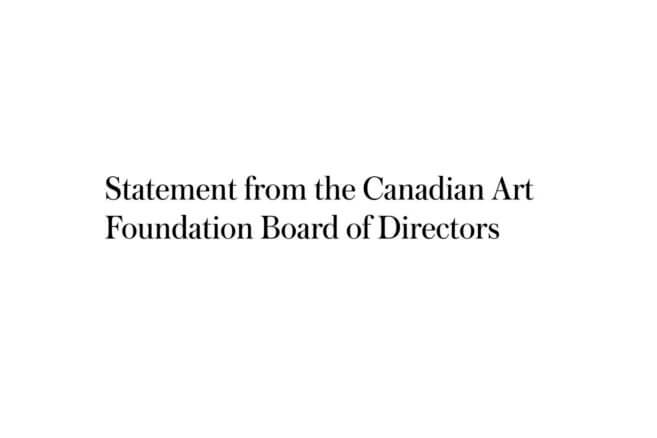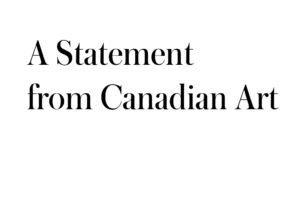A new set of workshops offering tools to address bullying, harassment and sexual harassment in the arts are now available across the country
They’re part of a wider, federally funded program called Respectful Workplaces in the Arts. And for a limited time, the Department of Canadian Heritage is paying most of the workshop and trainer-travel fees, making the sessions free or low-cost to artists and arts organizations. The workshops are for 12 to 24 people at a time, and last roughly three hours.
“The workshops are meant to let conversation happen around harassment,” says Susan Annis, who helped guide the project as executive director of the Cultural Human Resources Council of Canada (CHRC). “It can be for a group of artists, self-employed workers, staff, employers, or it can be a mixed group. The workshop has been designed to be responsive to what that participant mix is.”
The workshop trainers are all from the arts sector, and the CHRC is trying to match trainers with specific discipline needs. A group of dancers or dance organization staff, for instance, might be paired with a trainer who also has a dance background.
For the visual arts, one of the trainers is Renuka Bauri, who is Director of Advocacy and Communications at CARFAC National.
Bauri’s interest in becoming a workshop trainer for Respectful Workplaces in the Arts was sparked by her own experiences of being harassed as an arts organization volunteer—and not knowing what to do about it.
“I really think these workshops are needed,” Bauri says. “Because people need to have a better understanding, other than what their preconceived notions are, of harassment.”
Definitions are key to identifying harassment when it happens, or understanding it afterwards.
“I didn’t view what happened to me as harassment until I sat down and read the definitions and looked at the information more recently,” Bauri says.
Certainly more information about harassment in workplaces in Canada, and how to address it, is available now than ever before.
Prior to launching the workshops this fall, the CHRC and the Respectful Workplaces in the Arts program, with funding from the Canada Council, had already created webcasts and quick reference guides about the laws around harassment, bullying, and sexual harassment in each province and territory. It also created, with Williams HR consulting, a 30-minute online video for cultural workers about responding to harassment, as well as another 30-minute video for training arts employers and boards on how to respond to allegations of harassment in the workplace.
More resources are in development for the coming months—particularly around improving ways for cultural workers and artists to report sexual harassment.
“A lot of visual artists don’t have an HR department, so who do they go to to report an issue?” Bauri points out. An outlet is needed.
Earlier this year, researcher Jeanne LeSage worked with the CHRC to issue a report on mechanisms for reporting sexual harassment in the arts; since then the CHRC has received specific funding to implement some of LeSage’s recommendations.
“We are looking at the possibility of a 1-800 number for reporting harassment in the arts,” says Annis. A toll-free number exists for victims of sexual assault in Quebec, she points out. In the arts nationally, “ACTRA also has a toll-free number and has asked us to look at collaborating with them on it.”
Annis also hopes that a code of conduct for the visual arts can be developed. Respectful Workplaces in the Arts managed to facilitate such a code for the performing arts in Canada; it’s currently signed by 114 organizations.
For her part, Renuka Bauri is looking forward to leading workshops starting in Halifax in December.
Annis, too, is encouraged by what she has seen to date, and about what’s ahead.
“I am incredibly encouraged by the conversations I’ve seen so far, because I believe the vast majority of people in the sector want to do the right thing, and people are now much more aware,” Annis says. She adds: “If it means digging up bad actors … then that’s the way it has to be as we move forward with our greater, shared understanding of what it means to have respect for everyone.”
This post was corrected on November 6, 2019. The original stated that each workshop would be open to 12 to 14 participants. In fact, each workshop is open to 12 to 24 participants.





